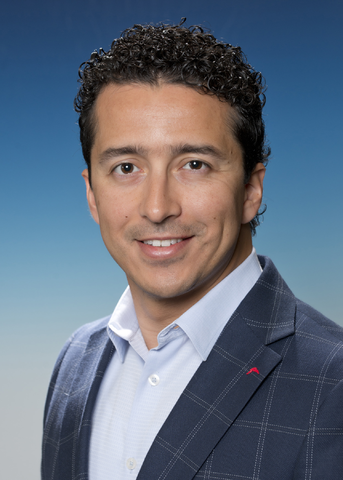.
Living with diabetes means watching what you eat. There are many foods, from sodas to pastas to dried fruit, that can cause a dangerous increase in blood sugars. For diabetics, triggering such an increase can have serious consequences.
Carbohydrates, which are often included on the list of foods that are dangerous to diabetics, are among the foods that are most challenging to avoid. Not only are carbs present in many common foods, but they are something that we simply love to eat.
“Carbs are very hard to resist because eating them is part of our human nature,” explains Dr. Ahmet Ergin, MD, FACE, CDCES, ECNU. “We crave carbs. They are one of the main nutrients that make up a healthy diet, and they give us glucose, which provides the energy we need.”
Dr. Ergin is a leading endocrinologist and a renowned diabetes educator. After completing his fellowship training at the prestigious Cleveland Clinic in Cleveland, Ohio, Dr. Ergin developed a passion for diabetes care. The more time he spent working with diabetics, the more he realized what a difficult disease it is to manage.
“My profession gave me a front-row seat to see and hear the multitude of challenges that all diabetics face, both from patients in my own practice as well as from my medical peers,” Dr. Ergin says. “I knew there had to be a better way to manage the disease.”
Dr. Ergin’s desire to give his patients a better quality of life led him to launch the SugarMD YouTube Channel, where he provides a wide range of insights on diagnosing, understanding, and managing diabetes. The channel has attracted more than 370,000 subscribers in a short amount of time.
The interplay between carbohydrates and diabetes is one of the topics that Dr. Ergin addresses on SugarMD. His view on the topic is that diabetics can enjoy carbohydrates regularly, provided they approach them in the correct way.
“I’m not talking about the carbs that you find in junk foods, like candy bars and processed snacks,” says Dr. Ergin. “I’m talking about the carbs that you find in whole foods. Carbs from whole foods are something that diabetics can enjoy, but there is a trick.”
Intermittent fasting is the trick that Dr. Ergin recommends. This dietary practice limits the times during which you eat, often inserting long stretches of fasting between meals. One method of intermittent fasting involves limiting meals to the eight-hour period between noon and 8 PM. Another involves eating a normal diet five days a week and fasting for the other two days.
“When you fast for 8 to 10 hours, your body goes into ketosis,” explains Dr. Ergin. “That process enables the body to repair the damage that diabetes causes, improving your insulin resistance. Once that is accomplished, you can enjoy a nice meal made up of healthy carbs, healthy protein, and healthy fat.”
For those who are intimidated by the idea of fasting, Dr. Ergin offers two strategies. First, he advises an early bedtime, as staying up late can lead to late night snacking. He also recommends a cup of coffee in the morning to stave off hunger.
While Dr. Ergin knows this process to be effective, he does not say that it is easy. Snacking must be avoided, and he warns anyone practicing intermittent fasting to stay out of the kitchen. The refrigerator or the pantry can be a strong temptation to someone who is attempting to go 16 hours or longer without food. However, those who can resist the temptation are rewarded with a healthy meal that includes foods that many diabetics were led to believe they could not enjoy.
“Diabetics often have people telling them about all of the foods they can never eat again,” laments Dr. Ergin. “My advice is to just forget those people. Life does not need to be that way. We are here to enjoy our lives. Even with diabetes, we can enjoy life. Diabetes is a disease, but it is not a life sentence.”
Dr. Ergin also highly recommends that diabetics consult with their doctor or diabetes specialist before engaging in intermittent fasting. They will be able to provide patient-specific guidance on the ways that fasting might interact with the medication they are using to cause unintended side-effects. Once cleared by your doctor, intermittent fasting could be the trick to achieving a better quality of life.
“Discipline yourself and learn to fast,” says Dr. Ergin. “Fasting does so much more than enabling you to enjoy carbs. It has been proven to improve health, prolong life, reduce the risk of cancer, and reverse diabetes and insulin resistance. It can be a powerful tool, but we need to learn to master our hunger to use it properly.”








 Photo by
Photo by 





